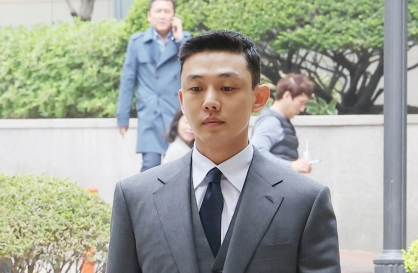[Top Envoy] S. Korea is done with ‘strategic ambiguity,’ ex-envoy says
War in Middle East complicates US strategy as it grapples with uncertainties involving Russia, China
By Choi Si-youngPublished : Oct. 25, 2023 - 14:27
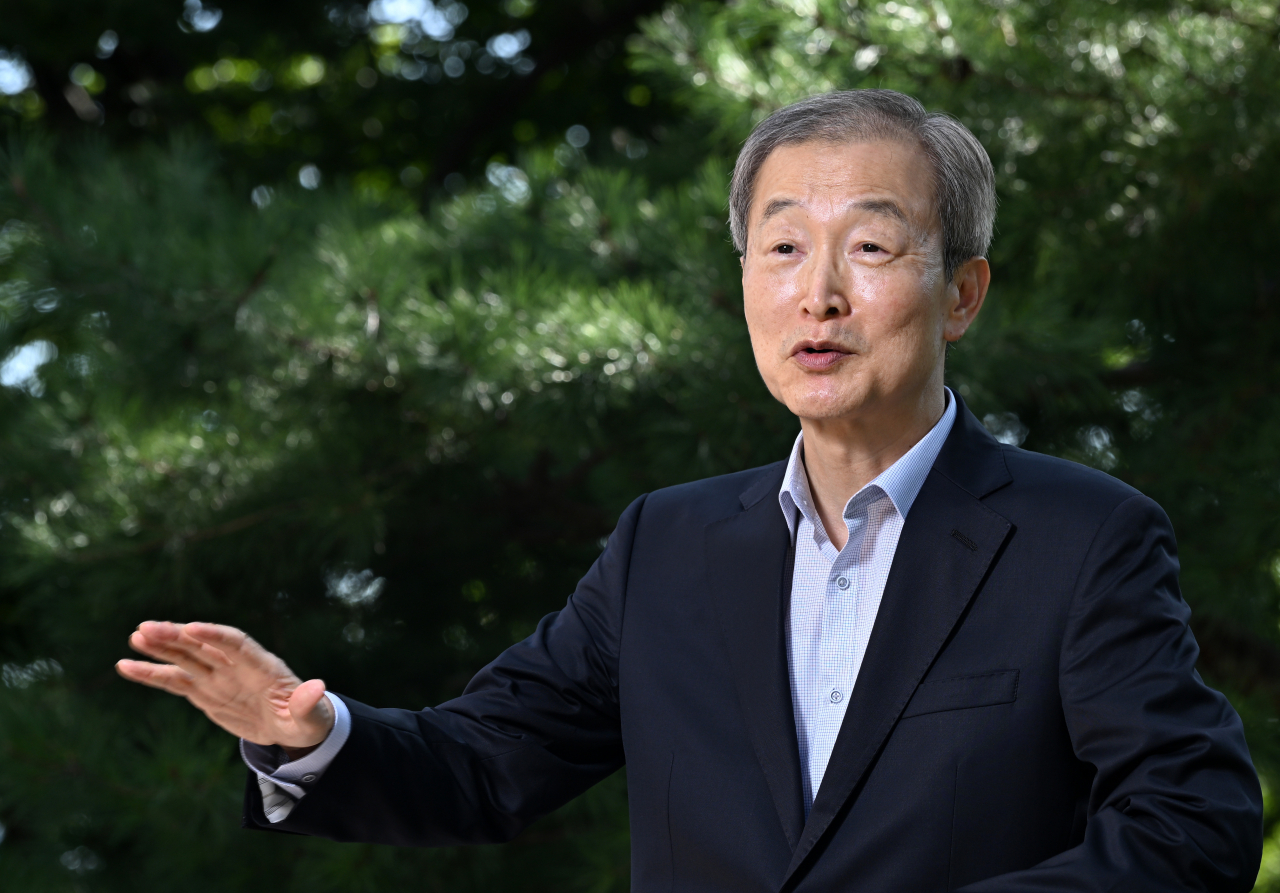
The Korea Herald publishes a series of interviews with South Korea’s former and current top diplomats who have played a central role in shaping the country’s foreign policies to confront the complexities of an increasingly contested international order while managing its historical relationships with allies and neighbors, for lasting peace beyond the Korean Peninsula. This is the third installment. -- Ed
Heightening threats from North Korea to use its nuclear weapons against South Korea make a clear case for the South to stick closer to the US and its nuclear umbrella, according to South Korea’s former ambassador to the US.
“Given the current geopolitical landscape, we can no longer tolerate the kind of ambiguity seen in the previous government. No, that’s not doable,” said Ahn Ho-young in a recent interview with The Korea Herald.
The envoy, who also served as the first vice foreign minister, was referring to last December’s unveiling of the Indo-Pacific strategy, President Yoon Suk Yeol’s signature foreign policy. It aims to regroup like-minded countries sharing similar values like democracy to solidify the rules-based international order.
That was a pivot away from Yoon’s predecessor, who had embraced a policy of “strategic ambiguity” on the US-China rivalry, a decision that critics say tries to have it both ways by not picking sides. Neither the US nor China was as happy with the approach, as the previous Moon Jae-in government had hoped.
No free lunch
Fighting off North Korea -- a “matter of survival” -- requires Washington’s support to contain Pyongyang with the US nuclear umbrella, Ahn said of the strategy also known as extended deterrence. The two allies are building on that deterrence to discourage a North Korean nuclear strike.
That strategy, which North Korea has feared most, got an upgrade at a White House summit in April where Yoon and US President Joe Biden shook hands on Seoul having a bigger say in how Washington manages its nuclear assets. Washington’s commitment to delivering on the plan, Ahn said, depends on how much support Seoul is willing to lend to its biggest ally.
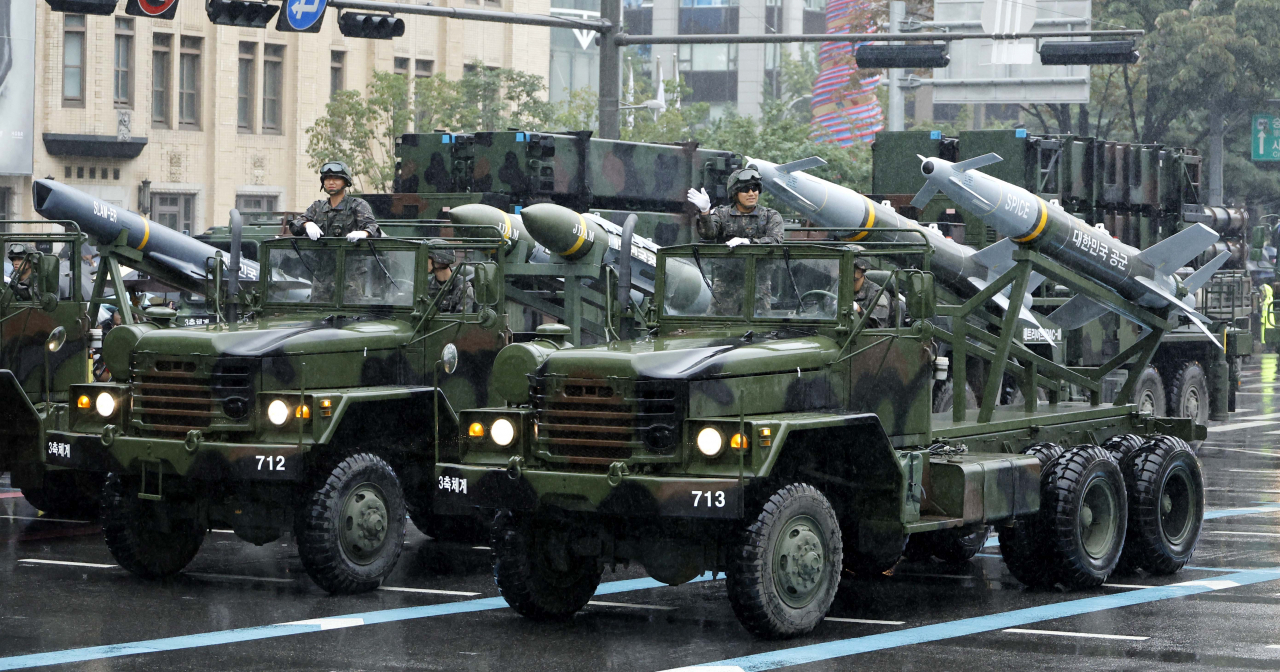
“There’s no free lunch. Imagine two Koreas: One that’s clearly ready to get on board and the other that’s sending mixed signals. It’s clear where Washington will place trust,” Ahn said, suggesting Seoul should make it clear where it stands.
South Korea developing its own nuclear weapons, instead of relying on those of the US, is unrealistic, Ahn added.
Emboldened by voices at home, Yoon himself had openly entertained that idea, as well as asking the US to reverse its 1991 decision and to redeploy tactical nuclear weapons on the Korean Peninsula. But he swore off making nuclear weapons at the April summit, signing instead the nuclear pact called the Washington Declaration.
“When push comes to shove, we’ll have to double down on American redeployment. But for now, we have a very effective tool and framework if we use it right,” Ahn said, referring to the declaration. He underscored “joint execution and planning” as a portion of what the document says as to how the two allies will handle US nuclear operations.
“What that means is we have our say guaranteed at the table,” Ahn added.
And working-level talks are key to ensuring the nuclear pact is durable and has “real influence,” according to Ahn, who cited the recent Nuclear Consultative Group meeting in July. The get-together, set up by the pact as a regular follow-up on the deal, discussed integrating Seoul into Washington’s decision-making process on nuclear weapons.
Kim Tae-hyo, South Korea’s first deputy national security adviser, met with Kurt Campbell, the US coordinator for Indo-Pacific affairs on the National Security Council. But some say higher-ranking officials should handle exchanges to come.
“More important is what they get done when they meet,” Ahn said, drawing on his experience working with NATO concerning reconstruction efforts for Afghanistan when he was ambassador to the European Union from 2011-12.
“Most of what two sides ultimately shake hands on really depends on what their working-level discussions have covered,” Ahn added. “We need to ensure lower-level conversations touch on topics and details that really matter to us.”
Taking on China challenge
Openly seeking to bolster the rules-based international order while forging closer ties with not only the US but also Japan is not the kind of initiative that also befriends China, a country that has been looking to make changes to “the US-led order.”
Yoon’s summit in August with Biden and Japanese Prime Minister Fumio Kishida at the US presidential retreat in Maryland, Camp David, condemned China’s aggression, especially in the South China Sea, where Washington and Beijing are locking horns over Taiwan, the self-ruled democratic island China threatens to take over forcefully, while the US pledges its defense support.
International rules and norms set the parameters of Seoul-Beijing ties, according to Ahn, who highlighted democracy and the rule of law. “They are South Korea’s ‘core values’ much like the ‘core interests’ China says should be respected,” Ahn said.
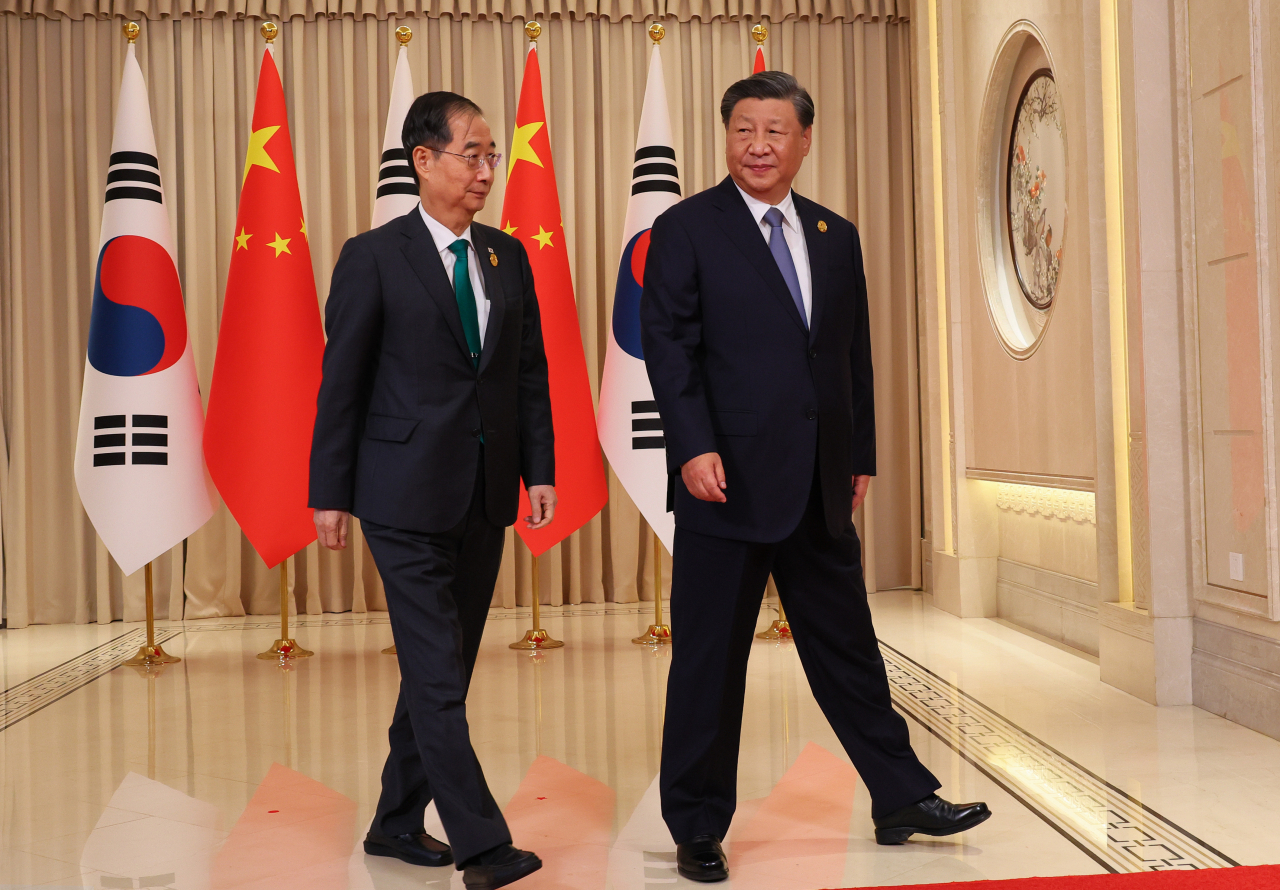
“We go from there and make sure reciprocity comes into play,” Ahn added. “We hadn’t really made that commitment clear enough before Yoon took office. That could’ve led China to think that Korea is a pushover.”
The former ambassador to the US, whose tenure lasted from June 2013 to October 2017 overlapping with two previous administrations before Yoon, was referring to China’s economic retaliation against Seoul’s decision to host a US anti-missile shield called THAAD, a process that started in April 2017.
Former President Moon faced criticism from opponents for flirting with a delay in the battery deployment to avoid upsetting Beijing. An environmental impact study, part of the installment process, was only finished in June this year. “We shouldn’t be afraid of economic retaliation,” Ahn said.
“And China seems to understand what Yoon wants,” Ahn noted, citing reports saying China is aware of Korea’s efforts for friendlier ties. In late September, Chinese President Xi Jinping suggested a visit to Korea, which last took place in 2014 and could be a major political win for the Yoon administration amid efforts not to alienate either superpower.
At a meeting with South Korean Prime Minister Han Duck-soo on the sidelines of the Asian Games in China’s Hangzhou, Xi also welcomed reopening trilateral summits involving Korea, Japan and China “at an appropriate time.” As this year’s host, Seoul is pushing to revive the regular summit after a four-year hiatus prompted initially by COVID-19 and later by political tensions.
“That’s a very good start to work our ties going forward, to start building on the momentum,” Ahn said.
Wars in Middle East, Ukraine
The career diplomat underscored the “worsening global security landscape,” which has been exacerbated by Russia’s war in Ukraine and Palestinian militant group Hamas’ attack on Israel. The South Korean military has suggested that North Korea might have played a role in the tactics and weapons Hamas employed in its multipronged offensive.
The war in the Middle East, Ahn noted, complicates policy options for the US as it seeks to not only stop a wider conflict, but prevent Russia and China from taking advantage of unfolding certainties. Avoiding a deepening humanitarian crisis is in the best interests of South Korea, according to Ahn, who suggested Seoul be ready in the meantime to take on global challenges whose implications extend far beyond the peninsula.
“That’s all the more reason we quickly but thoroughly follow up on our own plan drawn up a year ago, despite some roadblocks we might encounter along the way,” Ahn said. Foreign Minister Park Jin said in a recent interview with The Korea Herald that a clearer blueprint to deliver on the Indo-Pacific strategy might be rolled out in December to mark the first anniversary of the policy unveiling.
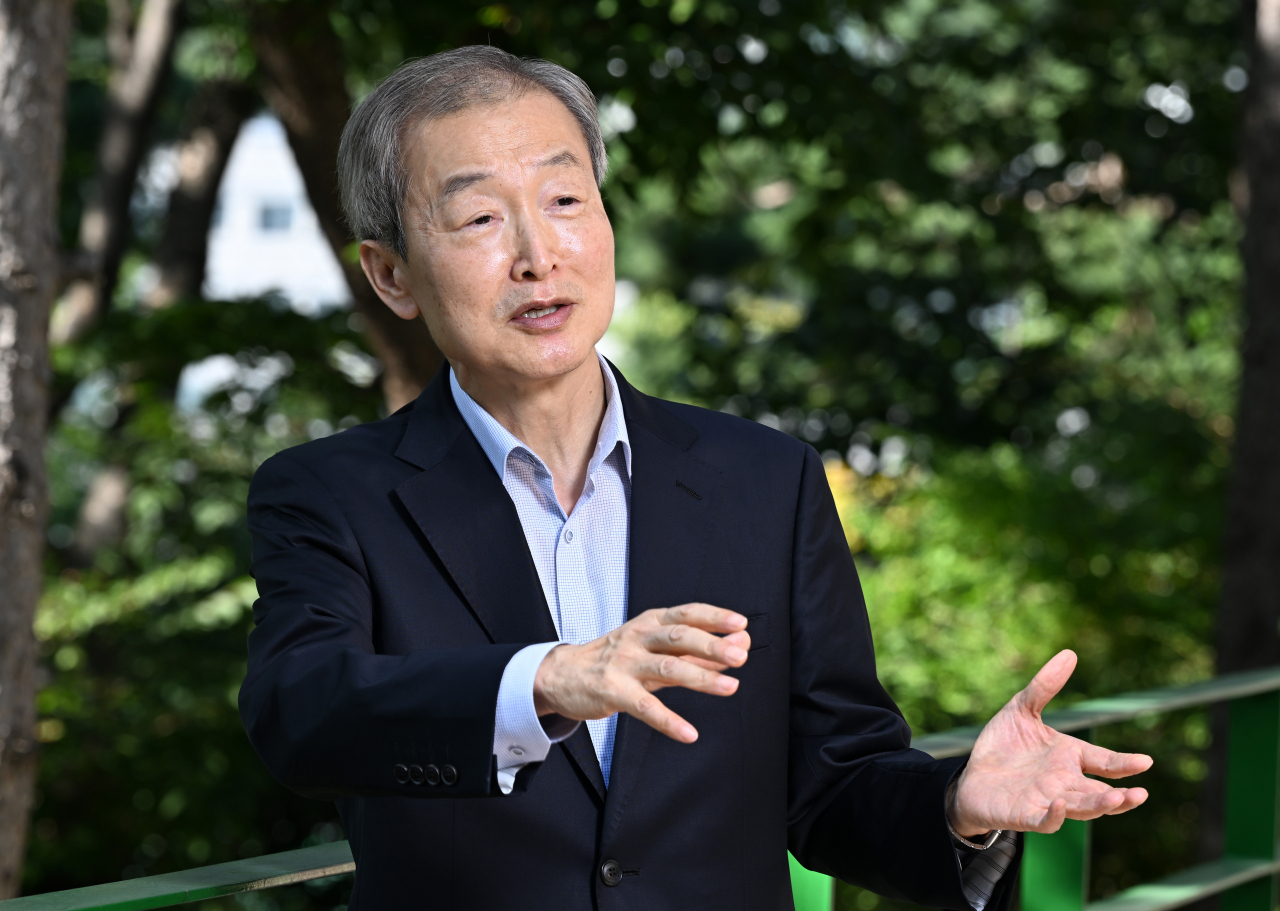
About Ahn
Ahn Ho-young is a former career diplomat with 40 years of experience including serving as vice foreign minister and ambassador to the United States and the European Union. In his earlier years, he had handled trade relations.
Upon leaving the ministry in 2018, he was named president of the University of North Korean Studies in Seoul, where he finished his term in 2022 and is now a board member. He is also a chair professor of North Korean Studies at Kyungnam University, teaching at the Institute for Far Eastern Studies, the university’s think tank in Seoul.








![[Hello India] Hyundai Motor vows to boost 'clean mobility' in India](http://res.heraldm.com/phpwas/restmb_idxmake.php?idx=644&simg=/content/image/2024/04/25/20240425050672_0.jpg&u=)


